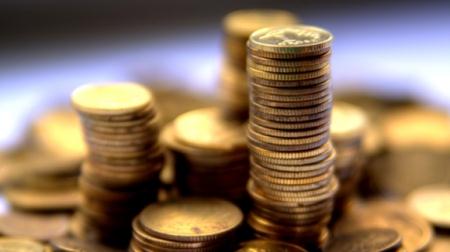Experts differ on benefits of tight currency policy

illustration photo
Banking expert Nguyen Dac Hung said the Vietnam dong-US dollar exchange rate has been fairly solid in recent years.
In 2010, the exchange rate shot up 9.68 per cent, in 2012 it slid 0.96 per cent, and this year it has only risen 1.32 per cent and is forecast to peak at around 1.4-1.5 per cent by year end.
The rate will go up by a maximum 2-2.5 per cent for 2014-2015 thanks to the government’s commitment to a stable rate, Hung added.
The State Bank’s (SBV) efforts to keep the rate stable in recent years have been praised by the banking community and import businesses.
According to a source from HSBC, Vietnam has the third most stable currency in Asia, which has hiked foreign investors’ confidence when doing business in the country.
That said, the central bank’s efforts have also seen their fair share of criticism.
Economist Vu Dinh Anh said the stable exchange rate had falsely strengthened Vietnam dong, disadvantaging exporters.
Anh recommended the SBV consider the risk of tightly controlling the exchange rate over the long-term and that it should now consider a more suitable policy.
Contrary to this, however, banking expert Nguyen Dac Hung said stability had more advantages than disadvantages by driving down the psychology of hoarding dollars, as well as halting the dolarisation trend. It has also helped the central bank replenish its foreign currency reserves and reduced public debt.
Head of the SBV’s Foreign Exchange Management Department Nguyen Quang Huy said both the exchange rate and inflation are intertwined. A stable exchange rate helps the SBV stabilise the macro economy and management authorities should carefully consider ulterior consequences before revising any policies.
Hung added that the stable exchange rate has helped banks get strong returns from their foreign exchange services.
“By the end of 2012, one commercial bank had made more than $23 million from their foreign exchange business. Most banks were profitable in this area in 2013,” said Hung.
Sacombank general director Phan Huy Khang said foreign exchange was one of the bank’s few strengths at a time they are losing greatly from diminishing credit demand.
Financial statements from 13 commercial banks showed that in the third quarter this year, foreign exchange and gold business brought in over VND670 billion ($32 million) against $33.5 million in losses over the same period last year.
What the stars mean:
★ Poor ★ ★ Promising ★★★ Good ★★★★ Very good ★★★★★ Exceptional
Latest News
More News
- Cashless payments hit 28 times GDP in 2025 (February 04, 2026 | 18:09)
- SSIAM and DBJ launch Japan Vietnam Capital Fund (February 04, 2026 | 15:57)
- Banks target stronger profits, credit growth in 2026 (February 04, 2026 | 15:43)
- Vietnam on path to investment-grade rating (February 03, 2026 | 13:07)
- Consumer finance sector posts sharp profit growth (February 03, 2026 | 13:05)
- Insurance market building the next chapter of protection (February 02, 2026 | 11:16)
- NAB Innovation Centre underscores Vietnam’s appeal for tech investment (January 30, 2026 | 11:16)
- Vietnam strengthens public debt management with World Bank and IMF (January 30, 2026 | 11:00)
- Corporate bond market poised for stronger growth cycle (January 28, 2026 | 17:13)
- Vietnam's IPO market on recovery trajectory (January 28, 2026 | 17:04)
















 Mobile Version
Mobile Version